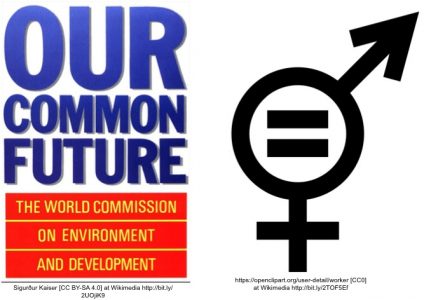One of the more widely recognized definitions of sustainable development is contained in the Brundtland Report (1987). This report came out of the World Commission on Environment and Development in 1983.[xii] The Brundtland Report defined sustainable development as “development that meets the needs of the present without compromising the ability of future generations to meet their own needs.”[xiii]
This report focused attention on the need to promote economic and social development in ways that avoid damaging our environment, such as through over-exploitation of natural resources and pollution. It critically focuses our attention on managing population growth and ensuring all human rights, especially for women and their basic human right for self-determination and equality.[xiv]
From a resource perspective, living sustainably means we must strive to use all energy, water, and food, and other resources sparingly, efficiently, and equitably. We must also maximize residual resource and energy recovery before generating a minimal amount of waste and pollution. Living sustainably must permeate everything that we do at home, at work, and when we travel. With an impending return to a cold climate, living sustainably will need to become embedded in daily human activity and popular culture, and become a new societal norm, both nationally and internationally.



Recent Comments